The Nonfiction Files 5: Answering Your Nonfiction Questions
You asked. I answered. Questions about nonfiction from long tomes to journalistic integrity and beyond.
This month’s Nonfiction Files is all about answering your questions, and you all had some really good ones. So we’re talking about light nonfiction reads, where I got my love of true stories, and how to find nonfiction books you’ll love.
Some of your questions were really meaty and I plan to answer them in detail for their own installments of The Nonfiction Files. I tried to avoid requests for book lists, though I also may address those in the future, too. If your question was along the lines of “can you tell me books that fit xyz topic” I skipped it. At least for now. Let’s dive in1.
This Nonfiction Files is free to all. If you like what you read consider joining as a paid subscriber to get more bookish content and to support my work here and across all platforms!
What is your nonfiction origin story? Did you enjoy reading nonfiction as a kid and if so, what were you reading and interested in then?
I ask myself this question a lot. I do not know exactly when I started reading nonfiction. But I cannot remember a time that I wasn’t dazzled by true life stories, from sports to documentaries and just the wild stories my dad would tell us at the dinner table. I have always had a fascination with the audacity of humans and life.
The first nonfiction book I read that really stuck with me was Go Ask Alice. Jokes on me, because that was in fact all fabrication, but I didn’t learn that until recently2. Fact or fiction, it did its job and scared the shit out of me.
The book I credit with making me a nonfiction girlie is Into Thin Air by, my A1, Jon Krakauer. I read it for extra credit in my high school Earth Science class. It knocked my socks off. It wasn’t the first nonfiction book I ever read, but it altered my tastes for sure. Once I understood that a book could do that everything changed. I think in a lot of ways I’m still chasing the high of that reading experience.
I would like to ask you about how you approach long, meaty nonfiction. There are a couple of nonfiction books on my TBR list, but they are 600 pages minimum so they are still sitting unread on my shelf. What tips and tricks do you suggest for approaching nonfiction works that enter potential tome territory?
Start strong. I will not pick up a 600+ page book for the first time as I’m getting into bed. I will fall asleep, and for a book of that length, I want to give myself a chance to get into the book’s rhythm. Another part of starting strong? Making sure I am only picking massive books that I am really and truly interested in and excited about. If it is long and it feels like a chore? Hard pass.
Make a Plan. I generally commit to the book and move all other reading (in that format — eyes vs. ears) to the back burner. I will try and lock in for a week and bang it out, making the book my personality. I look up facts and pictures, try to impress everyone I come into contact with by saying, “did you know…”. Some folks do the opposite, set a limit for how much of the book they’ll read in a day or a week. Or only read it at certain times of the day. Either way you approach it, I would say you need to stick to your plan. If you’re not into the book it is okay to DNF, but reading 20 pages one day and then not coming back for a week can make it really hard to follow and keep the facts and figures straight.
Don’t be scared. It is just a book. You can do it. So what if it takes a long time. Enjoy it.
Ghost writers for memoirs -- do you think about them? Pretend they're not there? Do you pay attention to certain ghost writers like you do editors? Is anyone NOT using ghost writers?
Let’s clarify: celebrity/public figure memoirs often have ghost writers, memoirs by career writers, usually don’t. There are some celebrities who don’t use ghost writers but, not a ton. I see that most often with celebs who are writers in some other area (TV writer for example) or who have extremely bad memoirs.
I personally don’t care if someone has a ghost writer. What I want is the best possible book and reading experience for me3. If you need to outsource the writing part to get that across, I’m all for it. Knowing your strengths is important.
There is also a difference between a ghost writer and a collaborator. Some ghost writers are sworn to secrecy4. Those folks aren’t even credited or thanked in the acknowledgments. Nowadays, we see a lot more books that are by a celeb and then it’ll say “with — insert co-authors name”. In the case of named collaborators I pay a little attention if I really like the book, but I don’t go digging or tracking. But, even paying a little attention to these writers has paid off for me, Another Word for Love by Carvell Wallace was a favorite book last year, and Wallace co-wrote one of my fave sports memoirs, The Sixth Man.
When it comes to fiction, I have certain authors that I generally like. So when they write something new I have confidence that I at least want to try it. Nonfiction seems a little trickier in that respect because a well reported book takes longer to write so a past body of work may not exist. Aside from looking at the author, are there other ways to judge based on prior reading experiences? For instance do you find that certain publishing imprints are better than others?
I think it is similar in nonfiction. I am always looking out for authors that I know I like, like Patrick Radden Keefe just announced his next book (out on April 7, 2026). But you’re right it can take a bit longer for them to have books out, so I often find myself looking for topics I’m interested. If you tell me there is a new Jonestown book, I’m on it, even if I don’t know the author.
I will also look for key words in the descriptions, “investigative” or “narrative” will usually perk me up. And I also look to my fave nonfiction writers for blurbs and social posts for the things they’re reading and loving.
I wrote a bit about the process I use to find nonfiction books in the “How to Pick Nonfiction You’ll Like” piece, which you might find helpful.
And a big yes to imprints being useful. I have favorites for the kind of nonfiction I like, usually because they have a good editor or two who will put out my kind of book. Avid Reader Press comes to mind. They publish Adam Higginbotham, Garrett M. Graff, and plenty of others I’ve loved. Crown is another I like a lot, they brought us Evicted, The Unclaimed, and There Is No Place for Us5.
What are your tricks and wisdom for identifying how 'academic' a non-fiction book is going to be? Sometimes I feel like I get tricked!
There are usually three quick ways to get a sense.
Is the author a professor? This isn’t bulletproof, because many academics also write trade books. But, if the author is a journalist, you’re less likely to get an academic book.
Is the book being put out by an academic press? There are different standards of peer review for academic publishers, and they require differing levels of citations. So generally this is a helpful indicator.
Read the back copy or a few pages. You’ll know pretty quickly if the book is going to be academic from that.
I enjoy your definitions/explanations of nonfiction sub-genres (for example, your definition of Memoir + makes so much sense!). What are some other sub-genres you think deserve more recognition or get lumped in with the general nonfiction, but deserve their own category?
Gosh, I wish I could think of more than what I came up with when I did the “Nonfiction Taxonomy”.
I struggled to name them, but I think thats probably because they exist in niches I don’t read as much, like self-help. Below is my taxonomy so you can see the ones I did come up with.
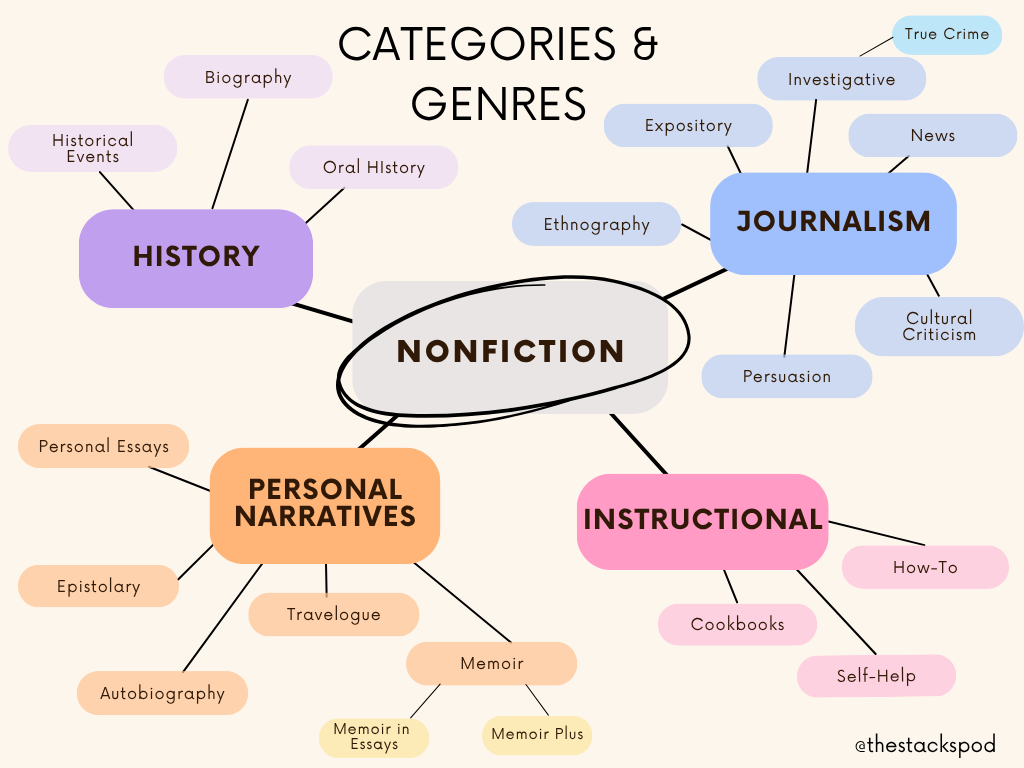
What are the ethical implications of nonfiction authors to the subjects of their books?
This is a question I think about a lot. It comes up when I’m reading books that dig deep into people’s lives, especially the worst moments of people’s lives. I have been lucky enough to ask some great authors and journalists about this, and they all agree, there is no right answer here. It is very grey and the landscape of journalism and ethics is both personal and ever shifting.
I have boiled it down to three things I think are the most important to me, a reader who has never been the subject of this kind of reporting nor ever written this kind of work. So you know, grain of salt.
The authors main responsibility it to the story and the audience. Telling the truth as they find it. That doesn’t mean it is an objective truth, but it does mean that they do not put their subject or their perceived story over the evidence. They must do due diligence, fact check, and confront inconsistencies, even if this upsets sources. Books are not court records, there must be a point of view.
They owe their subjects the space to make their own informed decisions. Authors should be up front about what they are writing, what they need, and what the commitment is from the subject. This should be an ongoing conversation. There should be space for sources or subjects to revoke consent to further interviewing (though this wouldn’t strike past statements from the record, per se).
Disclosures should be present. I want to know how the author has impacted the story (this doesn’t have to be in the main text, could be the intro or author’s note), this could look like payments, rides, access, influence, lack of access. I don’t think any of these things are automatically ethical or not, but not being clear about these types of conflicts to the story is.
None of this is set in stone. It is where I come down now, knowing how often my own morals and ethics change the more I learn and understand.
Just because the above is my minimum standard, I still obsesses over other questions that are much less clear to me. Should sources be paid? Does money matter more than access or fame? If so, why? How much say in the final product should sources have? If any, which sources? What do you do with your proceeds? All of these questions fascinate me in a “what would I do?” kind of way versus a “what is the right answer here?”.
If you haven’t listened to my conversation with the journalist Andrea Elliott, the author of Invisible Child, you should because she and I really dig deep into these questions.
And then when I spoke with Jason De León who is an anthropologist by training, he had really different things to say about his place and his responsibilities.
I think there might be a much longer piece here, and I really love that you’re thinking about the same questions as me.
I read and loved Charlie Hustle last year and as a direct result, picked an MLB team this year and jumped into baseball fandom. What are some other outstanding sports nonfiction? Doesn’t have to be baseball!
I wrote this piece a while back for shereads.com where I shared some great sports nonfiction, here is a link to check it out.
I find that a lot of the truly great nonfiction I've read have dealt with heavy topics, and it almost seems like nonfiction has to be "heavy" in order to be "good". Do you think this is the case, or can nonfiction take on a lighter or more redemptive tone and still be well-crafted and enjoyable reads? Are there any categories or genres to consider for picking up a lighter but enjoyable nonfiction read?
No. I do not think nonfiction has to be heavy to be good. There are some great writers out there taking a variety of approaches to nonfiction. I am really not a light reader in general, so my tastes always skew darker (in fiction and nonfiction), so if you get your nonfiction recs from me, I might be tainting the bigger picture for you. Sorry.
As far as redemptive books go, redemption usually comes after some pretty dark stuff. So with those types of stories you’ll get some darkness with the triumph. One of my favorite books that engages that kind of narrative is Unbroken which is about a man in WWII who’s plane goes down and he ends up in a Japanese POW camp. So like, that’s not light, but his story of survival will give you that holy shit look at what humans can do moment.
A few other types of nonfiction that you could seek out for a little more lightness include (but are not limited to):
Humorous essays and memoirs ex. anything by Samantha Irby
Celebrity memoirs ex. Inside Out by Demi Moore
Inside look into a profession ex. Kitchen Confidential by Anthony Bourdain
Deep dive into a niche topic ex. The Secret Lives of Groceries by Benjamin Lorr
Cultural criticism ex. A Little Devil in America by Hanif Abdurraqib
Self-help/How-to ex. The Art of Gathering by Priya Parker
Science books ex. How Far the Light Reaches by Sabrina Imbler
Travelogues ex. Wild by Cheryl Strayed
Those are places I would go, but I’d love to hear from you all about types of books that are less heavy than my go-to doom and despair books.
I don’t think I read any nonfiction books in high school, and I wish I would have. If you had to assign one nonfiction book, what would it be, and which class would you assign it in (English, history, science, ect.)?
I was lucky enough to read some nonfiction in high school. I mentioned above reading Into Thin Air in high school. I also was assigned Tuesdays with Morrie, Man’s Search for Meaning, and The Autobiography of Malcolm X while in high school. I’m sure there were more nonfiction books but I’ve forgotten them now. Funnily enough, none of the nonfiction books I read were for English class.
Now, if they let me assign the books in high schools, I would for sure assign a lot more nonfiction. But since you’re saying I can only pick one nonfiction book, I would go with The 57 Bus by Dashka Slater. It is about an incident that took place on a bus in Oakland, CA between two high school students, where one of them lit the other one’s skirt on fire. The book gets into race, gender, policing, and a lot of other systems at play. It is YA nonfiction, which helps when the topics at heavier to bring the language and understanding to an even playing field. I would assign the book in history class as a way to bring a lot of the topics that are covered in a sort of distant past way together in the current moment.
Thank you all so much for your questions. I had a lot of fun with this one. I’d love to hear your thoughts, questions, or insights in the comments.
If you’re looking for nonfiction recommendations be sure to check out my Nonfiction Reading Guide that is available only through September 22nd.
The 2025 Nonfiction Reading Guide
Here we are, the end of May aka Summer Reading Guide SZN™. And I’m back, just like everyone else, with my own foray into the guidescape. We call it the Nonfiction Reading Guide aka NRG.
I’ll be back with more of The Nonfiction Files in August!
If you want more of me and my nonsense be sure to listen to The Stacks podcast every Wednesday and follow me over on Instagram for a lot more book content.
You can earn a free subscription to Unstacked by sharing it with the people in your life. Just tap the button below and spread the word.
This post contains affiliate links. If you make a purchase through the links above, I may earn a small commission at no additional cost to you.
For length and clarity’s sake, I edited down some of you questions.
Shout out to The Stacks Pack for putting Unmask Alice on my radar, a nonfiction book that goes into the whole story behind Go Ask Alice.
I’m a Leo. This is obviously about me.
This was more common in previous eras.
All three of those books have the same editor, Amanda Cook.


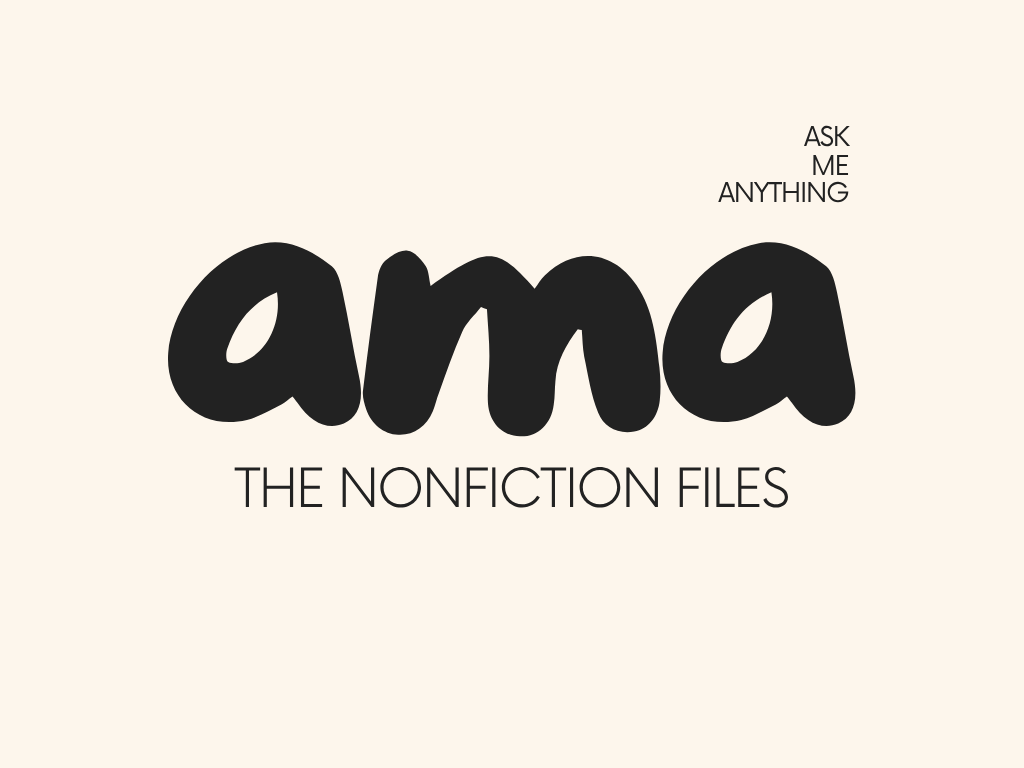
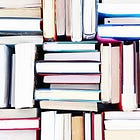
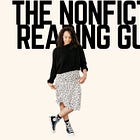

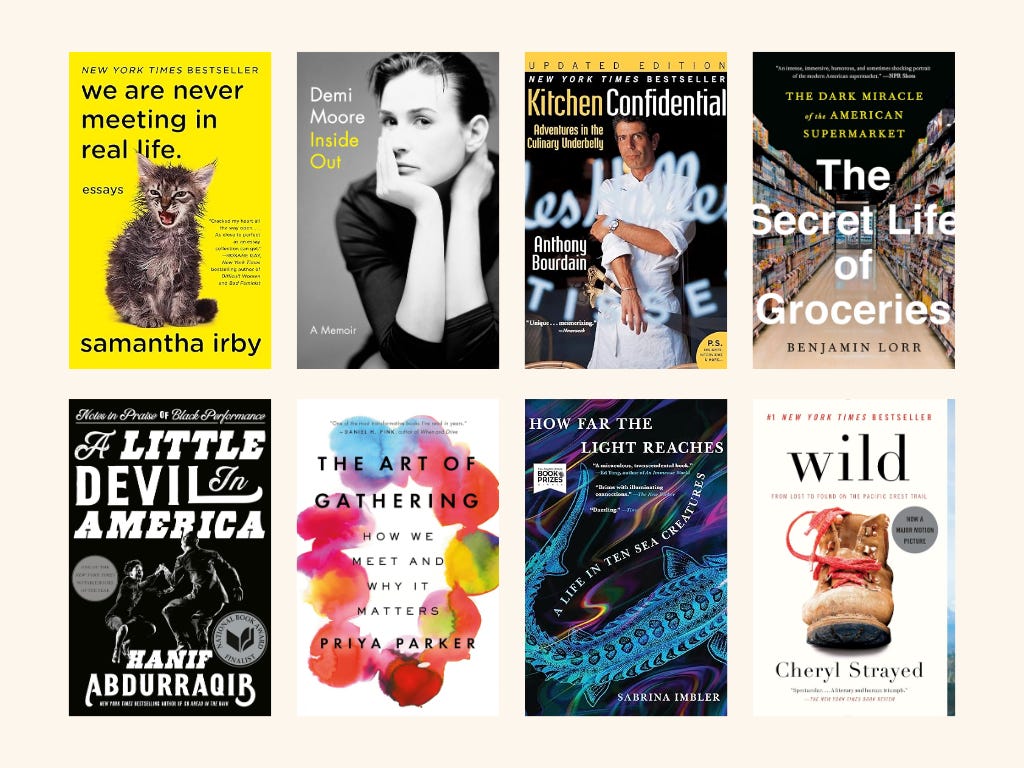

I've really appreciated the amount of detail, effort, and thoughtfulness you've brought to all of your Nonfiction Files posts! Love the recs especially in the "lighter" nonfiction section.
Your ethics section was great, and it made me think of something loosely related. I'm currently reading NO MORE TEARS and it has me thinking about the legal ramifications of expose books like this. I remember Patrick Radden Keefe mentioning that with EMPIRE OF PAIN, and I know that was a big story with CARELESS PEOPLE. I'm not sure if that's anything you know about - I guess the question is: how do authors/publishers go about publishing a book that could potentially get them sued? Maybe that could be a topic for a later post or podcast?
I love the chart. I read very little non fic and I lean towards personal and investigative journalism when I do. And also food writing and cookbooks. Love to see the different categories very clearly